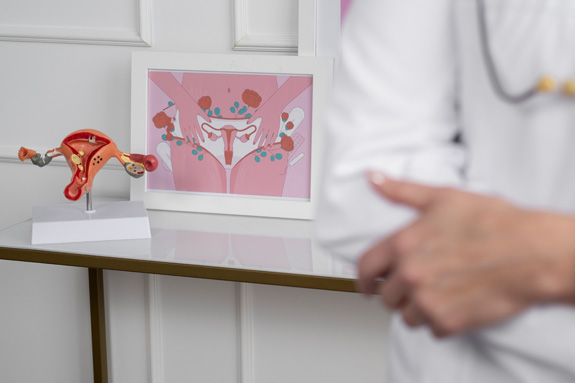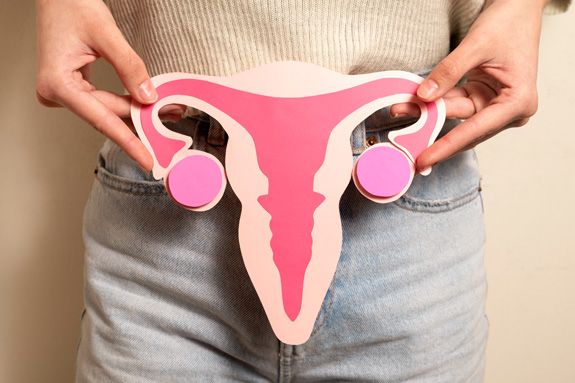When the uterus or bladder or rectum drops lower than their normal positions as a result of weakened muscles and ligaments, it is called Pelvic Organ Prolapse.
It usually takes years after childbirth for a woman to commonly develop pelvic organ prolapse. Sometimes, it develops after a menopause or can develop even after a hysterectomy procedure.
Cystocele:
When the wall between the urinary bladder and the vagina weakens, the bladder sags into the vagina giving rise to a condition we call Cystocele.
Rectocele:
When the wall between the rectum and the vagina tears or wears off, causing tissues or structures of the rectum to bulge into the vagina, it is called Rectocele, or Posterior Vaginal Prolapse.
Enterocele:
This happens when the small intestine descends into the lower pelvic cavity, and presses upon the top part of the vagina, creating a bulge.
Uterine Prolapse:
When the pelvic floor muscles and ligaments stretch and weaken until there is not enough support for the uterus, thereby pushing it down causing it to protrude out of the vagina, it is a case of Uterine Prolapse.
Most patients suffering from Pelvic Organ Prolapse seem to complain of a feeling of pressure in their pelvic area. Others sense “something coming out” of their vaginas, causing discomfort especially while standing.
Some experience bowel and bladder dysfunctions like urinary incontinence and difficulty in evacuating the bowel.
Treatment options may include surgical or nonsurgical interventions. If the prolapse is not a botheration, non-surgical treatment might be recommended, but if symptoms get worse, significantly affecting that quality of your life, you may have to opt for surgery.
A Pelvic Organ Prolapse can be rectified by Laproscopy by fixing a mesh thus bringing it back to normalcy. We perform two types of prolapse surgery laparoscopically. They are Pectopexy and Sacro colpopexy / Sacro hysteroscopy.


